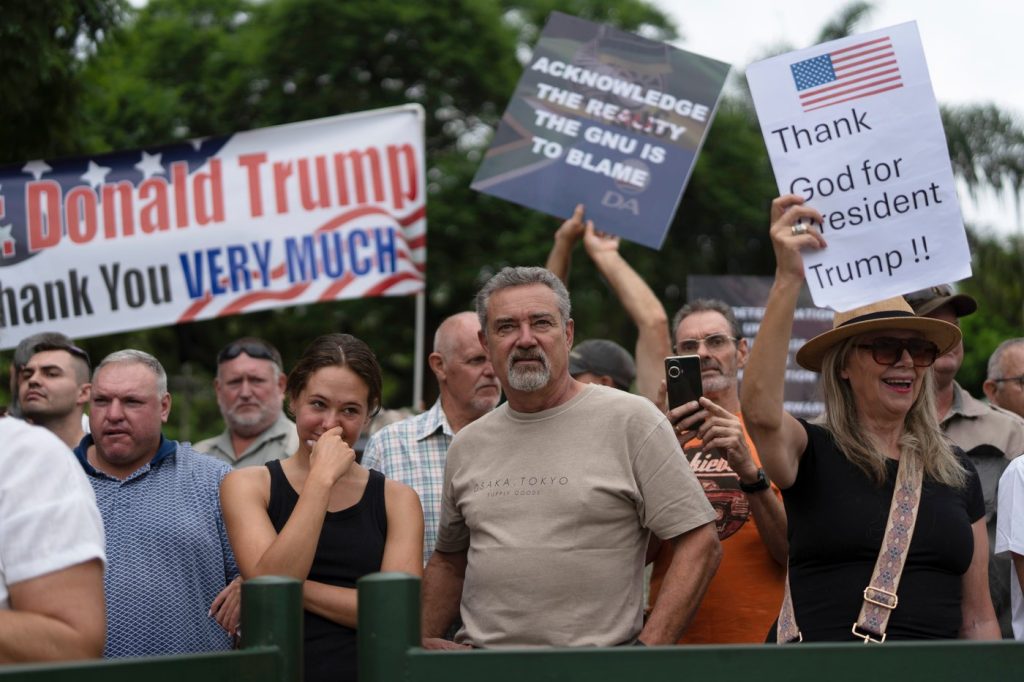CAPE TOWN, South Africa (AP) – U.S. President Donald Trump has announced that the United States government will boycott the Group of 20 summit scheduled for November 22-23 in Johannesburg, South Africa. Trump's decision stems from his claims regarding the violent persecution of the Afrikaner white minority in South Africa. He expressed this stance on Truth Social, stating that no U.S. officials would attend the summit "as long as these Human Rights abuses continue."
Trump's criticism targets the Black-led South African government, a consistent theme since he reassumed the presidency. Earlier in February, he enacted an executive order halting U.S. financial support to South Africa, using the treatment of the Afrikaner minority as his rationale. The Trump administration has also prioritized Afrikaners for refugee status, stating that they would receive the majority of the 7,500 spots available for the fiscal year.
The South African government and some members of the Afrikaner community have pushed back against Trump’s claims, arguing that they are unfounded and misleading. Afrikaners, who primarily descend from Dutch, French, and German settlers from the 17th century, played a central role in the apartheid system that enforced white minority rule from 1948 until 1994. Despite some Afrikaners expressing feelings of discrimination, a notable contingent of Afrikaner business leaders and academics recently published an open letter disputing the narrative of victimhood in post-apartheid South Africa.
Afrikaners speak Afrikaans, a Dutch-derived language that is an official language in South Africa, and they participate in all facets of society. They include some of the nation’s wealthiest entrepreneurs and successful sports figures. However, Trump has made more serious accusations, claiming that Afrikaners are "being killed and slaughtered" and that their land is being confiscated illegally. These comments reference a small number of violent attacks against Afrikaner farmers, which Trump and his supporters allege are racially motivated.
Trump pointed to a controversial law enacted by the South African government that permits land appropriation without compensation as particularly unsettling for Afrikaners. Many Afrikaners fear this legislation will lead to their displacement in favor of the country’s impoverished Black majority. Although this law has drawn criticism from various political parties within South Africa, it has not resulted in widespread land confiscation.
The South African government has responded to Trump’s statements, declaring them "not substantiated by fact" and attributing his criticism to misinformation. They highlight that Black victims of rural violence also exist, countering the narrative that only Afrikaners face racism. In 2024, over 26,000 homicides were recorded in South Africa, with 37 categorized as farm murders. Experts clarify that the primary motive behind farm attacks is often robbery rather than racial animosity.
Trump's criticism extends beyond concerns for Afrikaners. He previously labeled the hosting of the G20 summit in South Africa a "total disgrace," a sentiment he reiterated after declining to attend. Vice President JD Vance was initially slated to represent the U.S. in his absence. Trump went so far as to assert that South Africa should be removed from the G20, reflecting a broader critique of the country's stance on various international and domestic issues.
Additionally, Trump's executive order cited South Africa's "aggressive positions" toward the U.S. and her allies, particularly following accusations against Israel regarding the treatment of Palestinians at the United Nations’ highest court. Earlier this year, U.S. Secretary of State Marco Rubio also boycotted a G20 foreign ministers meeting in South Africa, deriding the host country's motto as overly centered on "solidarity, equality and sustainability."











